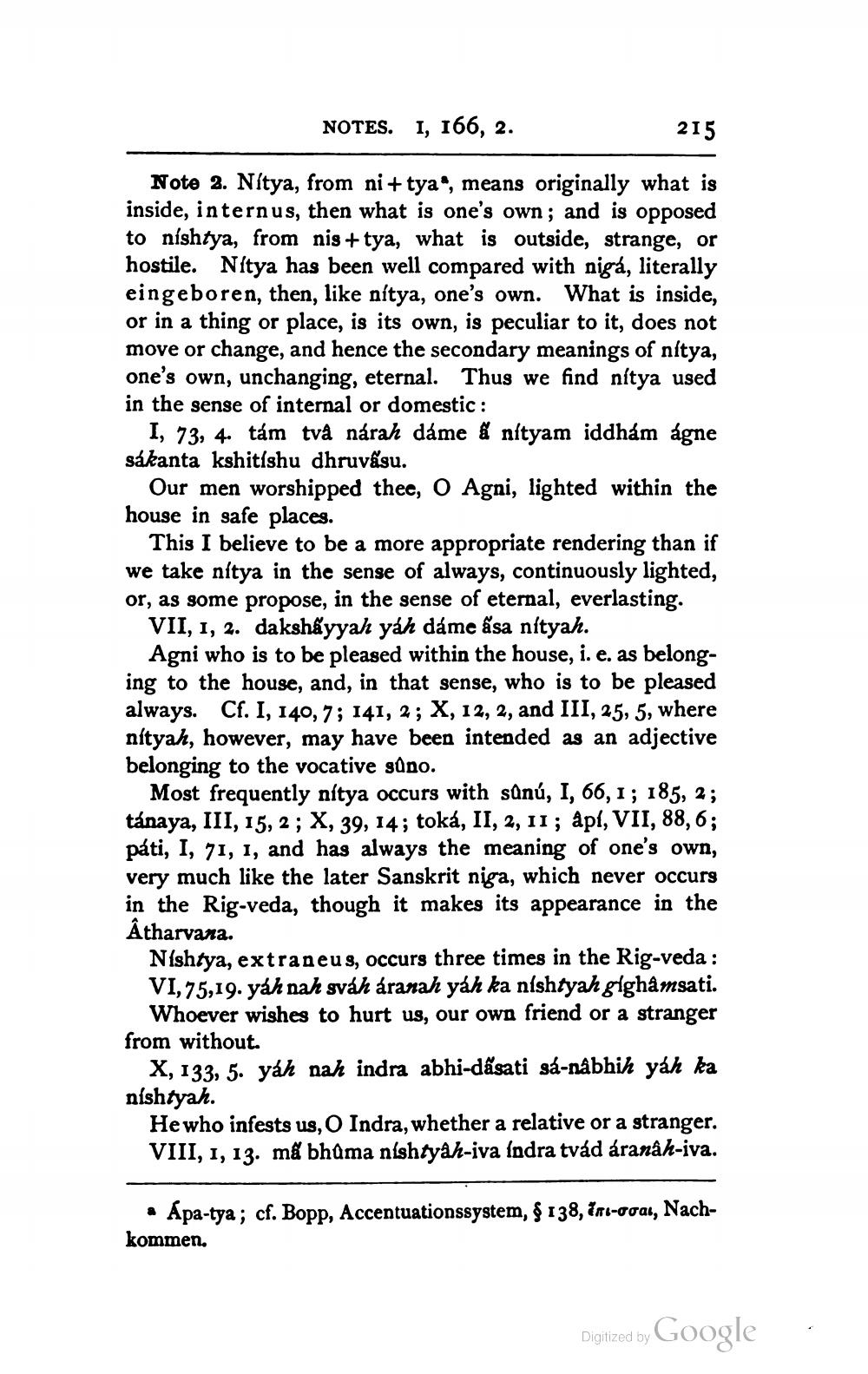________________
NOTES. I, 166, 2.
215
-
Note 2. Nitya, from ni + tya", means originally what is inside, internus, then what is one's own; and is opposed to nishtya, from nis + tya, what is outside, strange, or hostile. Nitya has been well compared with niga, literally eingeboren, then, like nítya, one's own. What is inside, or in a thing or place, is its own, is peculiar to it, does not move or change, and hence the secondary meanings of nitya, one's own, unchanging, eternal. Thus we find nítya used in the sense of internal or domestic:
I, 73, 4. tám två nárah dáme & nityam iddhám ágne sakanta kshitishu dhruvāsu.
Our men worshipped thee, O Agni, lighted within the house in safe places.
This I believe to be a more appropriate rendering than if we take nitya in the sense of always, continuously lighted, or, as some propose, in the sense of eternal, everlasting.
VII, 1, 2. dakshấyyah yah dáme äsa nityah.
Agni who is to be pleased within the house, i. e. as belonging to the house, and, in that sense, who is to be pleased always. Cf. I, 140,7; 141, 2; X, 12, 2, and III, 25, 5, where nityah, however, may have been intended as an adjective belonging to the vocative sono.
Most frequently nitya occurs with sânú, I, 66, 1; 185, 2; tánaya, III, 15, 2; X, 39, 14; toká, II, 2, 11 ; api, VII, 88,6; páti, I, 71, 1, and has always the meaning of one's own, very much like the later Sanskrit niga, which never occurs in the Rig-veda, though it makes its appearance in the
Atharvana.
Nishtya, extraneus, occurs three times in the Rig-veda : VI, 75,19. yah nah sváh áranah yah ka nishtyah głghamsati.
Whoever wishes to hurt us, our own friend or a stranger from without.
X, 133, 5. yah nah indra abhi-dásati sa-nâbhih yah ka nishtyah.
Hewho infests us, Indra, whether a relative or a stranger. VIII, 1, 13. má bhūma nishtyâh-iva Indra tvád áranâh-iva.
• Apa-tya ; cf. Bopp, Accentuationssystem, $ 138, in-roa, Nachkommen.
Digitized by
Digitized by Google
.




